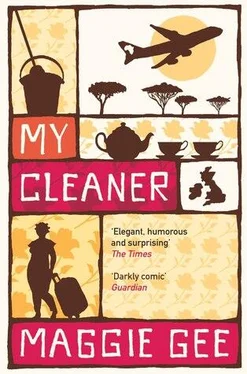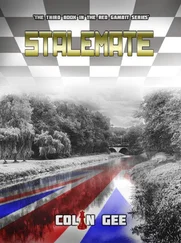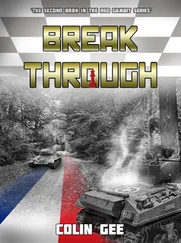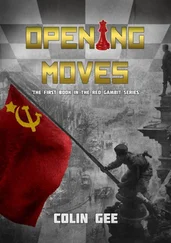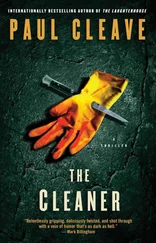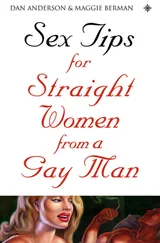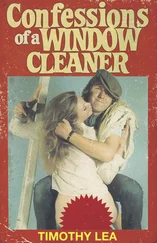I smiled and said to him, “Do not worry. Young women still need men for babies.”
But he looked sad and obstinate, like a goat, and he said, “You are wrong. They do not want babies. My ex said all men were wimps and liars.”
And this is the third thing, and the most important. I know the phone number and address of his girlfriend. I know this because I interviewed the cleaners, and had to listen to the phone messages. But one young woman did not want the job. One young woman had called for Justin.
She had a soft voice. She was called Zakira. She said she had called for him twice already. She did not leave her telephone number, but fortunately it was the last message, and I know how to find the last number.
I told Justin that the woman had called. At first he looked happy, but a minute later he turned over in bed, and groaned into the pillow. “It is all useless. Zakira hates me.”
“If she telephones you, perhaps she doesn’t hate you.”
“I know she hates me, because I am hateful. Because I am hopeless. Because I am disgusting.”
I said to him again, “You are not so bad. I think I should telephone Zakira . She has a nice voice. It is educated.”
But he groaned again and made me promise not to. Still I did not promise not to find her.
The next night, when he was fast asleep, I got up and put the bedside light on, then dug my way through the heaps of clothes that cover Justin’s bedside table. Then I started looking in his drawers. In my own bedside drawers I have pictures of Jamil, and the letters he sent me, and his school reports. They always say how hard he works. I must not start comparing Jamil and Justin.
Justin’s bedside drawers were like a litter bin. Old receipts, old tickets, old bills from restaurants. So once he went out like other young men. Once he bought music and expensive clothes. At last I found some letters in careful black writing, folded neatly together, unlike the rest. They were signed with a beautiful, flowing ‘Z’. Of course it was her, not Zadam , or Zargaret! But the first two letters had no address. I was very tired, and I might have given up, but God gave me patience to look at one more, and there was her address, at the top of the paper! 2 °Canaan Gardens. Or maybe 30. Or even 26. It was not written clearly. But all the same, I felt so happy. Yes, most things are going splendidly.
Mary and Trevor are smoking in the garden. Vanessa is at college all day on Friday, and Trevor has popped round to see how things are going. He finds Mary weeding, in her blue cotton nightgown, looking for all the world like a farmer. She smiles at him joyously. “I like this work. It reminds me of home, when I was a child, and watched my father. But the soil is so dry. In Uganda, we have real rain. Rain that can wash your house away.” She thinks, maybe this house should be washed away, and then all the people could escape, and Justin could swim up, with his curls in the sun.
“You’re not short of water, then,” says Trevor. He thinks of the Africa he sees on TV: flat yellow desert, with flyblown skeletons. But then he remembers one of the books he most enjoyed from his folding book chest. In fact, Trevor had enjoyed it so much that he did what he very occasionally does, which is to cheat on his usual system of passing books on as soon as he has read them, and deflected it to some bookshelves he’s put up in the garage, where he sometimes sits and reads and potters on Sundays: My African Journey, by the Rt Hon .
Winston Spencer Churchill M. P . The cover has a picture of a young Churchill in a solar topee, by a cross, dead rhinoceros. “Source of the Nile, Uganda, isn’t it? I know that from old Winston Churchill.”
“The villages are short of clean water,” says Mary. “People give them wells. But they forget to care for them. Maybe the problem is, they do not know how to. We do not look after things enough at home.”
“Well, Winston was impressed with the Uganda railway.”
“It is broken now,” says Mary. “Do you like his book?”
She makes Trevor strong tea, with milk and three sugars, and he offers her a fag, and they sit by the rose-bushes, which have grown too tall, for Mary has only snipped off the dead bits, by the little blocked fountain with its skin of black leaves, which English people have forgotten to look after. At the end, a stand of silver-green willows, just starting to ripple with gold, for autumn. Leggy pale yellow chrysanthemums. Honeysuckle that could do with pruning, but still bears twined crescents of pink and gold, as well as semi-transparent red berries. Not long ago, this was a beautiful garden, before Vanessa grew too busy to garden, before Justin was ill, when their world was lighter.
“I did like it,” says Trevor. “I really did. Dunno why, I just liked the cut of his jib.” Seeing her uncomprehending face, he says, “You know, I kind of took to him. He was an enthusiast, was Churchill. I’d like to go to Uganda,” he adds. “Didn’t Winston say it was the Pearl of Africa? I’m going to look that book out again.”
“Maybe I will borrow it,” says Mary. “I would like to see what he says about us. It is a famous book, but I have never seen it.”
“Done,” says Trevor. “I’ll bring it round…You know that Nessie went to Uganda.”
“She tried to tell me about it,” says Mary.
“I bet she did.” They both sit and laugh and blow out white smoke on the bright autumn air. Trevor notices the roses have got black spot. “You know you can never prune too hard, with roses. You want to have a real go at them. You have to be ruthless with a garden, Mary.”
Mary absorbs this advice, and smiles. She will enjoy being ruthless with Vanessa’s garden. “Trevor, I like the cut of your jib,” she says, and pats him on the shoulder.
But Trevor sits lost in his own thoughts. Trevor has never been ruthless with anyone. Trevor has given Vanessa her head. Perhaps he should have done more for Justin. Perhaps it is not too late to try. “You know the boy, Mary. You’re close to Justin. Do you think he’s well enough to give me a hand?”
“I think it is good for him to see his father. I think it is good for him to get up and work.”
“Only problem is, the old girl won’t like it.”
They puff reflectively. She says, “Never mind. Mr Justin is young, he should be working.”
“See, she’s always been terrified he’d be like his father. He was always the wonderkid, you know, super brainy. She always insisted he took after her. Whereas I was a bit of a dunce at school.”
“Once you are a man, school is not important.”
Trevor thinks, Mary is very wise. “Well, Nessie has never got to grips with that thought. See, for her, being brainy was the only escape route.”
“I don’t understand,” says Mary. The truth is, she doesn’t want to hear about Vanessa. It is enough that she puts up with her.
But Trevor keeps talking about Vanessa’s family. How they were ordinary country people. Her father was a farm labourer, who lived all his life in a tied cottage. “The mother was ill, as I remember. Ness told me all about it when we were first together. By now I don’t remember the details. Vanessa never wanted to go and see them. Not after we were married, and not before. So we went and got hitched in a register office. I asked my brother and my parents, but we didn’t tell her lot till afterwards. She said she couldn’t get married if they had to be there. Pity, really. I did love her. I know her Dad never had any money but I wouldn’t have minded footing the bill, you know, if she’d wanted to push the boat out, have a church wedding with all the trimmings…When I first met the mother, I thought she was bonkers. Poor woman, she kept asking if I was cold, and making cups of tea, but she hadn’t boiled the kettle. The father seemed to have given up. In any case, Nessy was a swot, and brainy, so she managed to get away from all that. So far as I know, she’s hardly looked back.”
Читать дальше
